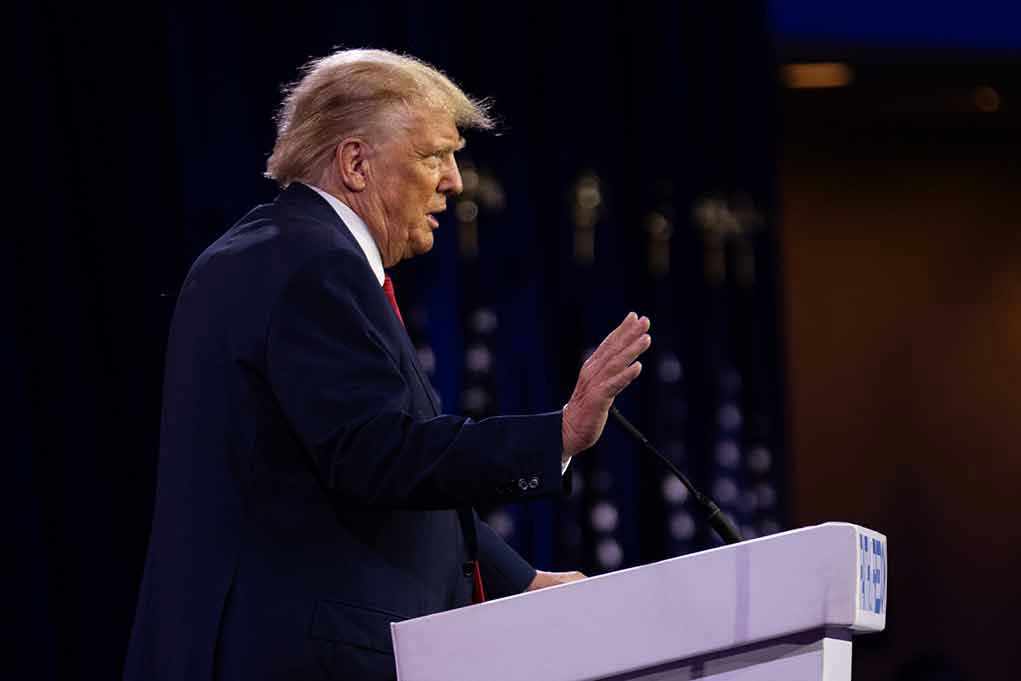
America’s energy future just pivoted: Trump’s Energy Department wiped out $7.56 billion in Biden-era green projects, igniting a fierce debate over what “waste” really means when the stakes are climate, politics, and billions in tax dollars.
Story Snapshot
- Trump’s DOE terminated 321 financial awards, axing 223 clean energy projects
- Estimated $7.56 billion in taxpayer savings, primarily impacting Democratic-led states
- Cancellation targets Biden’s climate agenda, refocusing on affordability and reliability
- Project recipients have 30 days to appeal, but hundreds of efforts are halted midstream
Trump’s Energy Department Declares War on Biden-Era Green Initiatives
The Department of Energy, under President Trump and Secretary Chris Wright, issued a sweeping memo: every Biden-era energy award would now be scrutinized individually, with the promise to “eliminate wasteful climate spending.” By September, the results were dramatic—321 awards connected to 223 projects were axed, and $7.56 billion in taxpayer funds were reclaimed. The targets included emissions reduction, clean hydrogen production, carbon capture, solar and wind energy deployments, grid modernization, and the electrification of transportation. The DOE’s rationale was unambiguous: these projects were ideologically motivated, overly influenced by climate lobbyists, and—most crucially—fiscally irresponsible for American taxpayers.
Trump's Energy Department axes Biden-era projects, saving taxpayers $7.56Bhttps://t.co/oW99RgrK1r
— Karoline Leavitt (@PressSec) October 3, 2025
Democratic-led states bore the brunt of the terminations, with Minnesota’s grid modernization and Hawaii’s wildfire resilience projects among the casualties. Meanwhile, similar projects in Republican-led states continued largely unaffected, fueling charges of political favoritism and a deliberate undermining of blue-state climate leadership. The Office of Management and Budget, led by Russell Vought, labeled the effort a purge of “Green New Scam funding,” framing the mass cancellations as a triumph of common sense over climate activism. The administration’s messaging hammered home the notion that the DOE’s new priority is reliability, affordability, and security—words carefully chosen to resonate with voters skeptical of climate-centric spending.
Biden’s Climate Agenda Meets a New Ideological Wall
The Biden administration’s energy strategy, from 2021 to 2024, had poured billions into decarbonization, clean hydrogen, and grid resilience, aiming to meet international climate commitments and transform America’s energy landscape. Projects were launched in partnership with states, private companies, and research institutes—with particular emphasis on Democratic strongholds advocating aggressive energy transitions. Trump’s victory in the 2024 election set the stage for a dramatic reversal. The DOE’s mass review and subsequent terminations represent not just a change in priorities, but a deliberate ideological rebuttal. The scale dwarfs previous transitions, echoing Trump’s first term but with sharper partisan targeting and a much larger price tag.
The appeals process is now open—project recipients have 30 days to contest their cancellations. Yet, for many, the disruption is immediate: halted construction, layoffs, and derailed community resilience plans. Industry observers warn that the sudden shift risks stalling innovation, undermining grid upgrades, and leaving vulnerable regions exposed to extreme weather and cyber threats. The DOE insists it will continue to review all awards for taxpayer value, but the message is clear: climate-driven initiatives are no longer the default, and the burden of proof has shifted sharply onto those seeking federal support.
Winners, Losers, and the Chilling Effect on Clean Energy
The economic, social, and political impacts extend far beyond the canceled projects themselves. States losing funding—especially Democratic-led—face setbacks in grid modernization, climate resilience, and clean energy job creation. The estimated $7.56 billion in savings is touted by the Trump administration as a victory for fiscal discipline, but critics argue that some projects might have yielded future savings or economic growth through energy innovation. The clean energy industry, already navigating uncertainty, faces a chilling effect: investors and companies are now wary of federal reversals, undermining momentum built over the last four years.
Supporters of the cuts—primarily conservative policymakers and fossil fuel advocates—applaud the move as a reassertion of energy independence and common-sense budgeting. Environmental groups and Democratic officials describe the terminations as reckless, politically motivated, and detrimental to America’s global climate leadership. The partisan divide is stark, with the Trump administration leveraging executive authority to reshape the energy landscape according to its own priorities, regardless of previous commitments or regional needs.
Expert Analysis: Ideology, Economics, and America’s Energy Identity
Industry experts, academics, and policy analysts offer deeply divergent interpretations of the DOE’s actions. Some see the mass cancellations as a setback for innovation and competitiveness, warning that halting grid modernization and resilience efforts exposes the nation to greater risks. Others argue that rigorous financial oversight is long overdue, asserting that climate-driven spending had ballooned beyond what is economically justifiable. The facts—number of projects, dollar amounts, and targeting of Democratic states—are corroborated by multiple independent reports, with Fox Business and NOTUS providing detailed coverage of both the scale and the partisan dynamics at play.
The long-term question remains open: will the reclaimed billions translate into lasting taxpayer benefit, or will the U.S. pay a steeper price in lost innovation, weakened infrastructure, and diminished global standing? As the appeals process unfolds and the energy sector recalibrates, the full legacy of Trump’s DOE purge is far from settled. For now, the open loop is this: in the battle between fiscal discipline and climate ambition, the only certainty is that America’s energy identity is once again up for grabs.
Sources:
Fox Business – Trump’s Energy Department axes Biden-era projects, saving taxpayers $7.56B
NOTUS – Trump DOE cuts Biden-era energy projects, impacts states




